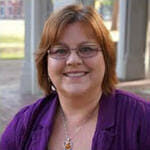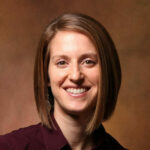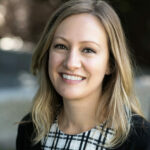Neurodiversity is the rule rather than the exception. What are you doing to support the neurodiversity of all students?
While neurodiversity isn’t a novel concept in higher education, there is still a lot of confusion around its definition as well as its implications for the classroom and campus life.
Contrary to some beliefs, neurodiversity, or learner variability, applies to all students. Rather than looking for a cure to “fix” neurodiverse behaviours, neurodiversity focuses on accommodating and supporting the diverse population. Human brains all learn differently; therefore, neurodiversity should be regarded as the rule, not the exception.
If you wish to build or improve the neurodiversity initiative on your campus, join us for this workshop where you will learn a variety of ways to support your diverse student body, including:
- How to build awareness of neurodiversity on your campus to propel the paradigm and mindset shift forward
- How to create a culture of student self-advocacy and agency
- Why Universal Design for Learning (UDL) is a crucial framework to support the diverse needs of students in the classroom
- How to design flexible assessments that allow students multiple options to demonstrate their mastery
- What communication techniques you can use to enhance how students experience all areas of campus
You will leave this course with a new understanding of what neurodiversity means in higher education, both inside and outside of the classroom.
Post-Conference Workshop
Designing for Diversity: Using Universal Design for Learning Principles to Enhance Curriculum
As of now, much of our curriculum is initially designed as if learners are "neurosimilar" then retrofitted for those who don't meet that mold. What if we can initially design for the diversity, enhancing curriculum so that it accommodates the needs of some but is a usable option for everyone? In this workshop, you will start by asking yourself what you want your students to be able to know or do and then work backwards, using the UDL (Universal Design for Learning) framework, to rethink how to present material and assess competency.
Who Should Attend
This conference is designed for those looking to optimize and improve the learning experience of their neurodiverse student body.
This conference is appropriate for:
- those who are just getting started
- those who already have a neurodiversity initiative on their campus but want to absorb new ideas and network with others in the field
Do you have questions about the content of this training or its fit for your needs? Email our Program Manager, Whitney Egstad, at whitney@academicimpressions.com

Agenda
Your registration for the event includes full access to all conference sessions and materials, the networking reception on Monday, breakfast and lunch on Tuesday, breakfast on Wednesday, as well as refreshments and snacks throughout the conference.
Post-conference attendees will be provided with lunch on Wednesday too.
12:30 - 5:30 p.m
In this initial session, you will begin to fundamentally change our approach to supporting students. We will discuss what neurodiversity is and isn’t, keeping in mind that all students are neurodiverse. We will also begin to realize that in order to support students learning and growth, we cannot simply do things the way they have always been done.
Awareness of neurodiversity often starts with the student. You will learn how to help students help themselves. You will also learn how to encourage students to have agency over their learning, to understand their strengths, and to facilitate student groups.
This informal reception is your chance to decompress, have some refreshments on us, and expand your network of connections. Our programs are intentionally designed for smaller groups, so this is a great time to catch-up with attendees and speakers whom you may not have connected with yet.
8:30 - 4:30 p.m.
Human brains all learn differently, and neurodiversity is a rule not an exception. You will explore how Universal Design for Learning can be a powerful framework for accommodating learner variability in the classroom.
How will we know that all students are learning successfully? We will explore how to design flexible assessments which give students the opportunity to show what they know in more than one way.
In this session, you will hear about how learning centers can offer one-on-one support and adaptive technologies to create an environment where students can be successful.
Neurodiversity considerations are not just restricted to the classroom. Our speaker will share communication techniques to enhance how students experience all areas of campus (including Admissions, Advancement, and the Career Center) as well as programming and partnership options to encourage neurodiversity beyond campus.
Main Conference: 8:30 a.m. to 12:00 p.m.
Post-Conference Workshop: 12:00 to 4:00 p.m.
How can you procure funding and use resources smartly when launching neurodiversity initiatives? During this session, our speakers will share different ways they were able to fund a variety of efforts on their campuses.
After our instructors weigh in about technology that supports student learning, we will collect information about top tech from attendees and share benefits, drawbacks, and costs of each tool.
During this final session, you will have a chance to ask our panel of speakers any remaining questions about their experiences and lessons learned in spearheading neurodiversity initiatives, designing for learner variability, and partnering across campus.
Post-Conference Workshop
Designing for Diversity: Using Universal Design for Learning Principles to Enhance Curriculum
As of now, much of our curriculum is initially designed as if learners are "neurosimilar" and then retrofitted for those who don't meet that mold. What if we can initially design for the diversity, enhancing curriculum so that it is necessary for some, usable by everyone? In this workshop, you will start by asking yourself what you want your students to be able to know or do and then work backwards, using the UDL framework to rethink how you can present material and assess competency.
![]()
Speakers

Josh Burk, Ph.D.
Professor and Chair of the Department of Psychological Sciences, Faculty Affiliate in the Neuroscience Program, College of William & Mary
Currently, Professor Burk’s studies the neural mechanisms underlying differences in attentional processing. In collaboration with Professor Cheryl Dickter, he researches how differences in autistic behaviors and social anxiety affect emotion processing. Professor Burk is also one of the co-chairs of the Neurodiversity Initiative at William & Mary. He co-teaches a course, Neurodiversity, two times each year, in addition to assisting with programming associated with the Neurodiversity Initiative.

Dr. Elizabeth Coghill
Director of the Pirate Academic Success Center, East Carolina University
Dr. Elizabeth Coghill is responsible for the establishment and development of the university learning center, including scope of services, new academic support initiatives, program evaluation and assessment, training, national certification, and accreditation. She currently serves as the President of the National College Learning Center Association’s regional affiliate, the Southeastern College Learning Center Association. In addition, Dr. Coghill has been an advocate for Universal Design for Learning (UDL) in higher education environments.

Cheryl L. Dickter, Ph.D.
Professor for Teaching Excellence, College of William & Mary
Cheryl L. Dickter is an Associate Professor in the Department of Psychological Sciences and a faculty affiliate of the Neuroscience Program and the Gender, Sexuality, and Women’s Studies Program. Dr. Dickter received her Ph.D. from University of North Carolina-Chapel Hill. She co-directs the William & Mary Scholars Undergraduate Research Experience (WMSURE), which supports high-achieving undergraduate scholars from underrepresented backgrounds.

Eric J. Moore
UDL and Accessibility Specialist, University of Tennessee
Eric is a professional educator with over a decade of experience in the classroom ranging from teaching drama and English in Kokomo, Indiana to teaching literature and philosophy in international schools in Indonesia and South Korea. Most recently, he has begun a scholarly career in teacher education and higher education instruction for diverse learners.
Questions About the Event?

Whitney Egstad
Program Manager, Academic Impressions

